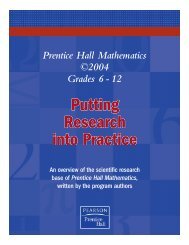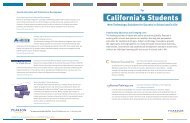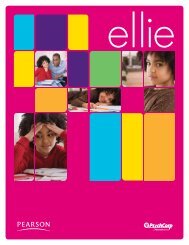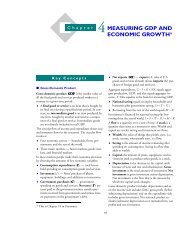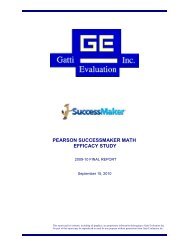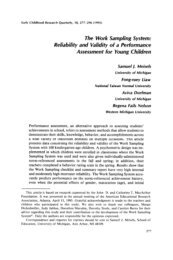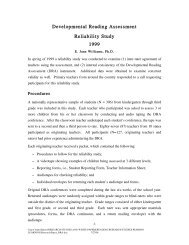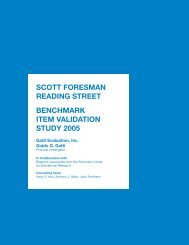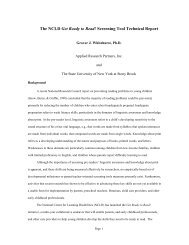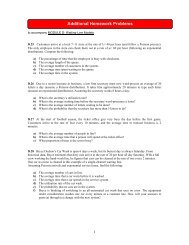Language Arts: Grammar and Punctuation Basics ... - Pearson
Language Arts: Grammar and Punctuation Basics ... - Pearson
Language Arts: Grammar and Punctuation Basics ... - Pearson
You also want an ePaper? Increase the reach of your titles
YUMPU automatically turns print PDFs into web optimized ePapers that Google loves.
FragmentsA word group that lacks a subject or a verb <strong>and</strong> that does not show a complete thought is called a fragment. Because fragmentsare incomplete thoughts punctuated as complete ones, they can confuse readers <strong>and</strong> must be avoided. One key toeliminating fragments from your writing is knowing the difference between two types of word-groups: phrases <strong>and</strong> clauses.Phrases <strong>and</strong> ClausesA group of words without a subject/verb unit is called a phrase. A group of words with a subject/verb unit is calleda clause.■■Phrase (Fragment):My relatives in Chicago. (no verb)Clause:My relatives live in Chicago. (contains a subject, relatives, <strong>and</strong> a verb, live)Phrase (Fragment):Rounding the corner. (no subject)Clause:A red convertible was rounding the corner.(contains a subject, convertible, <strong>and</strong> a complete verb phrase, was rounding)Independent <strong>and</strong> Dependent ClausesThough clauses contain both a subject <strong>and</strong> a verb, that does not mean that all clauses are complete sentences. There aretwo types of clauses: independent clauses <strong>and</strong> dependent clauses.A clause that can st<strong>and</strong> alone as a complete sentence is called an independent clause.A dependent clause cannot st<strong>and</strong> alone. Dependent clauses always start with a word called a subordinator. Words likealthough <strong>and</strong> since are subordinators. Because they are incomplete thoughts, dependent clauses must be attached to independentclauses.Common Subordinatorsafter if until whereveralthough in order that what whetheras since whatever whichbecause that when whilebefore though whenever whoeven though unless where whoseFor example:■ Independent Clause:Dwane likes professional basketball.Dependent Clause (Fragment):Although Dwane likes professional basketball.Correction:Although Dwane likes professional basketball, he enjoys watching football even more. (attached dependent clause)



